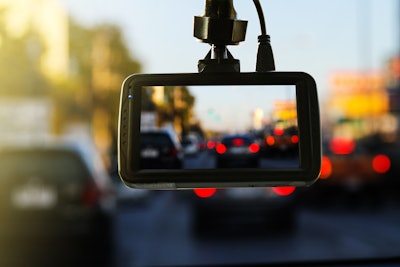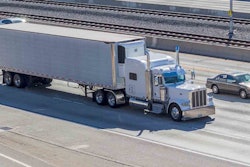
Our transportation clients frequently inquire whether they should invest in dash cameras for their fleet of commercial motor vehicles. Their primary concerns (aside from the upfront investment costs) is the possibility that a dash cam will capture content that may be harmful in a future lawsuit.
Although a valid concern, our vast experience in representing trucking companies, their drivers, independent contractors and various owner/operators over the years indicates that most commercial motor vehicle drivers are good drivers, and that it is very rare that a motor vehicle collision involving a truck is solely the fault of the truck driver. Therefore, we always tell our clients the same thing: The financial investment in dash cameras will help with future litigation costs and payouts, and there's a related savings in insurance premiums.
We recently defended a case where the client – a tractor-trailer driver – rear-ended a box truck that was slowing down due to traffic ahead. The box truck driver alleged that our client made no attempt to apply the brakes prior to impact, resulting in serious injuries to the box truck driver.
Fortunately, the client’s vehicle was equipped with a dash camera system on its windshield, which not only displayed a decreasing speedometer reading prior to impact, but also showed the box truck driver walking around the accident scene without any apparent injury following the collision.
The dash camera footage was extremely helpful in not only showing that severe sun glare caused a sudden emergency that impeded our client’s vision, but also in establishing that the client did what he could to avoid the collision under the circumstances. Perhaps more importantly, it shed severe doubt on the assertion that the debilitating injuries the box truck driver claimed were related to the accident.
Although the existence of dash camera footage cannot always help a motor carrier with respect to liability, it can nevertheless protect it from having to pay excessive damages, which could ruin any business. We once represented a tractor-trailer company whose driver rear-ended, and then ran over, a motorcyclist and his passenger while driving at night on a local interstate. The driver of the motorcycle was killed and the passenger suffered severe permanent injuries.
The motor carrier was sued for both compensatory damages and punitive damages. The latter is intended to financially “hurt” a liable party and tends to be a substantial amount of money if awarded. It is also not covered by insurance.
The punitive damages claim was premised on the notion that the truck driver was watching a football game on his iPad while he was driving immediately prior to the accident. Notably, the tractor-trailer was equipped with a forward-facing mid-cabin dash camera, which captured both the front area of the interior cab as well as the view out the windshield.
While the camera did capture the fatal accident with the motorcycle, it also recorded a minor reflection of the iPad’s screen on the vehicle’s windshield. Importantly, the tablet’s reflection demonstrated that the iPad was face down on the truck’s passenger seat. The driver was merely listening to the game – like someone would listen to the radio – when the collision occurred. This footage ultimately helped the client avoid the prospect of punitive damages that could have led to the motor carrier into bankruptcy.
Finally, a motor carrier should also consider that, in struggling economies – such as that which may exist during COVID – insurance fraud tends to rise. The presence of dash cameras in your fleet can protect against fraud by providing evidence showing, for example, another driver cutting off your truck, initiating a brake check, or otherwise intentionally causing a collision to score an easy payday by initiating a bogus insurance claim against your company.
When it comes to defending a personal injury action involving a commercial motor carrier, the presence of dash cameras will help your company more than it will hurt. While upfront capital costs need to be a concern for any business, hopefully you can see how the costs associated with the installation of dash cameras should be considered a worthy investment.
Jeffrey L. Oster is a partner with the law firm of Vaughan Baio & Partners who represents various commercial motor vehicle clients in lawsuits filed in Pennsylvania, New Jersey, and Maryland. He can be reached at [email protected].












